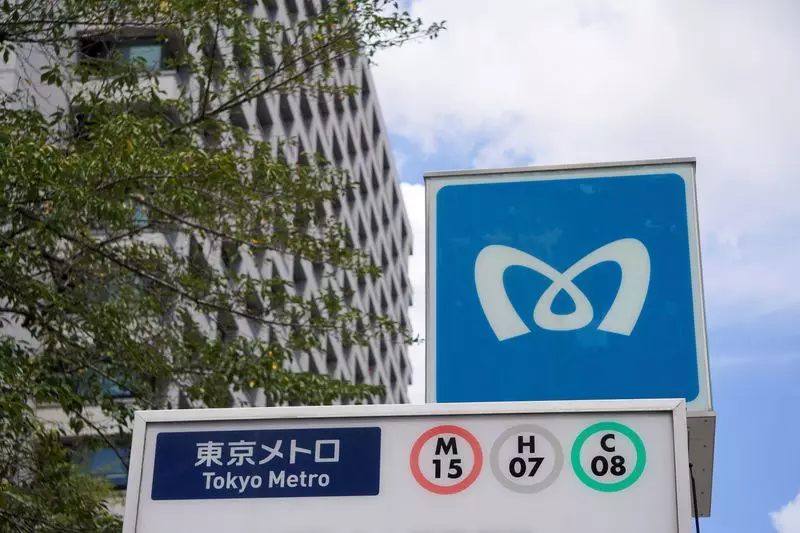In a significant development in the Japanese financial landscape, Tokyo Metro has set its sights on raising a remarkable 348.6 billion yen (approximately $2.3 billion) through its highly anticipated initial public offering (IPO). This marks the largest IPO in Japan in the past six years, signaling a renewed investor confidence in public transportation and infrastructure amidst evolving market conditions. Pricing its shares at the upper end of the planned range at 1,200 yen, the offering has attracted considerable interest, reflecting robust demand from various investor categories.
The overwhelming enthusiasm for Tokyo Metro’s IPO is evident, as reports indicate that the offering was oversubscribed by more than 15 times. This enthusiasm is significantly fueled by the allure of the firm’s dividend yield, estimated at an impressive 3.3% based on a projected annual dividend of 40 yen per share for the fiscal year ending March 2025. For retail investors, the portion of shares allotted—accounting for nearly 80% of the total—was oversubscribed by approximately ten times, highlighting the accessibility and appeal of this investment opportunity. Furthermore, shares allocated to institutional investors received even greater attention, oversubscribed over 20 times for domestic and over 30 times for foreign entities.
Tokyo Metro’s IPO doesn’t just serve as a capital-raising endeavor; it represents a strategic shift within the broader railway sector in Japan. Analysts indicate that the predictability and stability associated with the railway business could attract long-term investors, especially in light of the anticipated growth stemming from an increase in inbound tourism. As Japan continues to position itself as a prime travel destination, the potential for elevated passenger traffic adds an additional layer of optimism around Tokyo Metro’s operational expansion.
Importantly, the IPO is not merely a corporate milestone but also reflects the strategic divestment of government holdings. The central government, which holds a 53.4% stake in Tokyo Metro, along with the Tokyo metropolitan government, is offloading half of their shares as part of this process. This share sale underscores a shifting paradigm in public-private partnerships within Japan. Existing market dynamics are also notable; for context, this IPO is occurring alongside other planned offerings, such as Rigaku’s venture in the X-ray testing tools sector. Conversely, Bain Capital’s retraction of their Kioxia IPO due to valuation disputes indicates a potentially volatile market, making Tokyo Metro’s success even more pivotal.
Tokyo Metro’s upcoming IPO not only stands as a testament to the resilience of Japan’s transportation sector but also offers a promising investment avenue amidst a fluctuating financial climate. With a transparent communication strategy and attractive dividend yield, the company is likely to attract a diverse range of investors, paving the way for future stability and growth within the Japanese economy. As the nation prepares for its stock exchange listing on October 23, all eyes will be on this emerging giant, heralding a new era of investment within Japan’s urban infrastructure.

